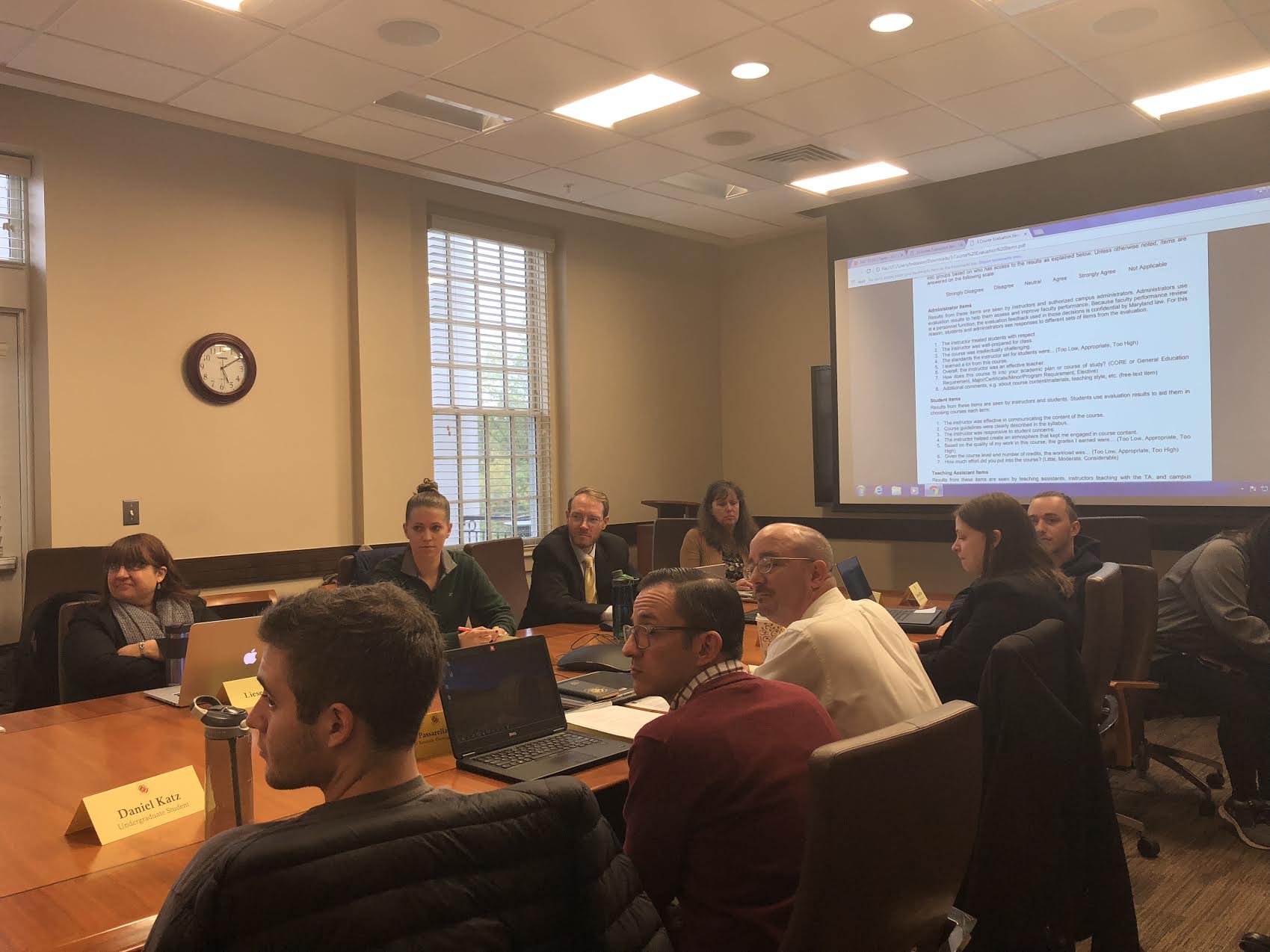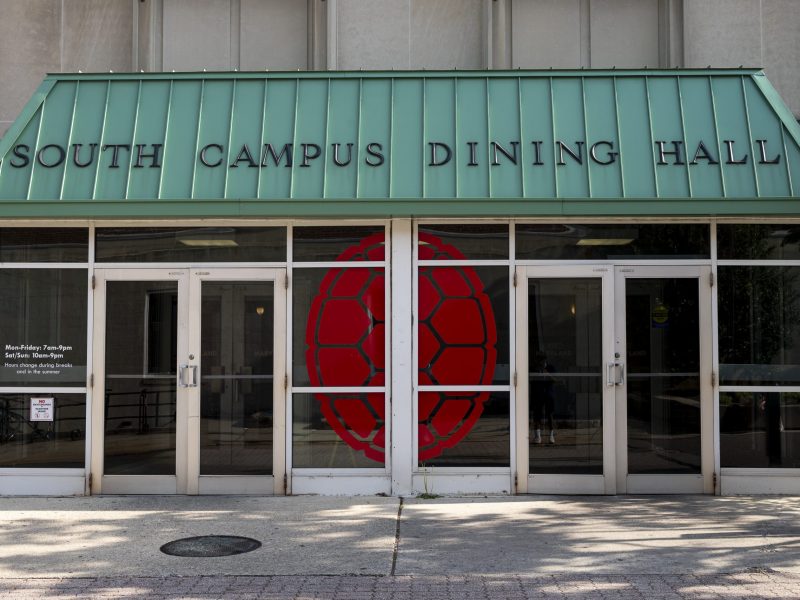Two University of Maryland Senate committees met Monday to review and discuss possible changes to course evaluations.
Last semester, the Senate Executive Committee tasked the Academic Procedures and Standards Committee with reviewing the current university course evaluation system for possible improvements. An APAS subcommittee, specifically assigned to work on course evaluations, attended the Student Affairs Committee meeting Monday for student feedback and recommendations.
This university created its course evaluation system in 2006 to provide feedback to faculty on teaching effectiveness and to provide information to students so they can consider prior feedback when choosing future classes, according to the bill.
The proposal looks to build off a 2010 APAS review of the course evaluation system and “to incorporate them into practice,” the bill read. It also recommends designing the course evaluation system around classroom environment, course content, teaching practices and assessment.
[Read more: UMD Senate will review limited enrollment programs for the first time since their creation]
On Aug. 23, Provost Mary Ann Rankin announced in a university-wide email that students will now be able to “view recent course evaluation results through a new tool in ELMS.” These results, which include evaluations completed by at least 70 percent of students enrolled in a course, show student answers to multiple choice questions on the course evaluation, though students cannot view written feedback.
Student Affairs Committee member Daniel Katz, a senior finance and international business major, said the group should explore teacher flexibility.
“Some students have to miss class for whatever reason, whether someone’s an athlete, someone [is] observing holidays, etc.,” Katz said. “Some teachers are generally a lot better at handling that and are more equipped to handle that than others. And that’s something I would personally like to see as well.”
Katz also suggested making peer comments visible to students. This university’s course evaluation allows students to give written feedback about the courses they take, but unlike other online course evaluation websites — such as RateMyProfessors and OurUMD — these comments aren’t available to other students.
“Right now, the teacher is the only one that can see those comments, so there’s no responsibility if there is a major issue,” said Doron Tadmor, a sophomore finance and international business major. “So not only having the students being able to read those comments but maybe other faculty or student advisers so they know what’s actually going on in that class and they can make a correction where needed.”
According to the Office of Institutional Research, Planning and Assessment website, “instructors are able to view results from all items for their own course(s) only. Additionally, faculty and academic administrators addressing the needs of their academic department, can receive limited access rights to results with appropriate permission.”
Course evaluations allow faculty and staff members to see student feedback, but students cannot see the “administrator-facing items” and the administration cannot see the “student-facing items,” said Mike Passarella-George, a member of the APAS course evaluation working group.
Course evaluations ask separate questions for “student viewing, and personnel decisions,” according to the bill, an issue that the APAS committee was asked to look into as it “[doubles] the length of the survey instead of using questions for multiple-purposes,” according to the proposal.
[Read more: UMD SGA working to improve course evaluation system]
The Academic Procedures and Standards subcommittee also discussed how to increase student participation in course evaluations through methods such as extra credit, which some instructors already do, Tadmor said.
Christine Rhee, a sophomore middle school math and science education major, suggested allotting class time to complete evaluations.
“It’s just an efficient way for [students] to know that they have an allotted time just to complete it, instead of worrying about doing it outside of class [when] they’re busy with other things like extra-curriculars and homework,” Rhee said.
The APAS committee has until Dec. 15 to complete the review and provide recommendations for the University Senate to vote on in the future.
CORRECTION: Due to a reporting error, a previous version of this story incorrectly attributed a quote to Dennis Passarella-George, the University Senate’s Student Affairs Committee Residential Life representative. The quote came from Mike Passarella-George, a member of the APAS course evaluations working group. This story has been updated.



